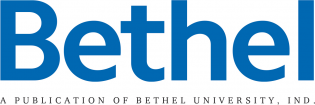Growing a Research Experience at Bethel
At a small liberal arts college, one may not expect to find a science program where students are able to conduct the type of research done at a major research institution. But that’s just what Assistant Professor of Biochemistry Lynne Cary, Ph.D., has started with the Undergraduate Research Group (URG). And this past summer, four students — Mark Lettinga (’10), Josh Lukas (’12), Matthew Sommer (’11) and Dori Walterhouse (’12) — worked on breast cancer research that they hope to validate by publishing in a peer review journal.
This is an amazing first considering that just six years ago, Bethel did not have a research experience to offer students, let alone the facilities to support it. When Cary, a then research scientist at The University of Notre Dame, came to Bethel in 2004, the lack of adequate space and equipment was a definite obstacle to developing a solid research experience. She had funding through a Lilly Endowment QUEST grant, but students had to go to Notre Dame to conduct research.
From 1 to 96
With the construction of the new science wing in 2007, complete with state-of-the-art labs and equipment, Cary was able to expand the research right on campus. So what started with the study of BRCA1, a single gene linked to breast cancer, has expanded to include many more. “Five or six years ago, we looked at one or two genes. With new technology called PCR Microarray, we can look at 96 genes,” Cary says.
The current URG is studying the problem that not all chemotherapy treatments work the same for all women. Their hypothesis is that different tumors will have different biomarkers, so they are analyzing the genetic profiles of cancer cells to identify the biomarkers. Their hope is that this research could lead to more research that would improve the effectiveness of cancer treatment.

While visiting the IU Simon Cancer Research Center, Cary and her students paused for a photo with Dr. Sledge and Greising at the Vera Bradley Foundation for Breast Cancer Research Laboratories. Pictured left to right, Lukas, Sommer, Dr. Sledge, Cary, Greising and Walterhouse.
This past spring, Cary took Lukas, Sommer and Walterhouse to visit the IU Simon Cancer Center and Vera Bradley Foundation for Breast Cancer Research Laboratories at the Indiana University School of Medicine. There, they witnessed cancer treatment first-hand from the woman who inspired their research.
Bethel Assistant Professor of Business and Social Sciences Leslie Greising, Ph.D., a dear friend of Cary’s, was diagnosed with inflammatory breast cancer in 2006. It’s because of her that Cary chose to have the research experience focus on breast cancer. “I wanted our research to matter,” Cary says. “Our project is following Leslie.”
From Research to Reality
The URG students observed as Greising received chemotherapy, and they got to tour the lab and meet Sledge. The experience was both inspiring and affirming. “To see the direct impact of what happens in the lab — it’s really realistic,” says Lukas. “Visiting the Vera Bradley Lab helped me frame the overall picture of our research,” says Sommer. “What we’re doing is at the level of what they’re doing.”
For Walterhouse, the similarities between the IU lab and Bethel’s lab — in terms of equipment, layout and materials — was astonishing. “We’re working with the same setup that they have. We’re doing real work that is aiding the fight against breast cancer. What we’re doing is actually significant,” she says.
This is exciting, considering the research experience’s humble beginnings.
Moving Forward
In the past, students did research as an independent study or during the summer. But this fall, Bethel is offering a research class for the first time called biology research techniques. Not only is this course allowing students to receive credit for a real research experience, it will equip them with the technical and critical thinking skills necessary to be successful in the competitive fields of science and medicine.
“I want to grow the research experience so students can compete with other students from top schools,” says Cary.










Professor Cary action is admirable, as researcher and professor she do it for the love for friend who has a breast cancer and help the student to stand -out among other school. That there school can be competitive as other big school. There research will be a help in the future.